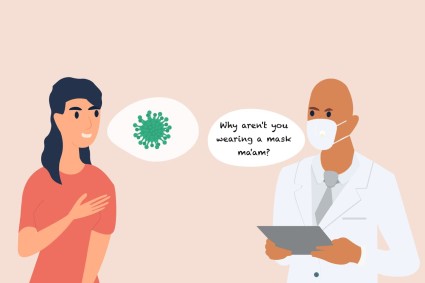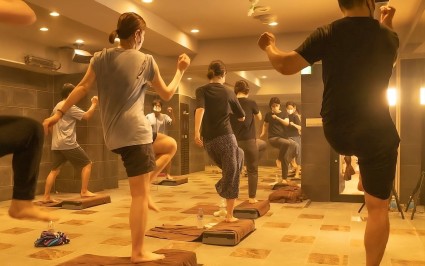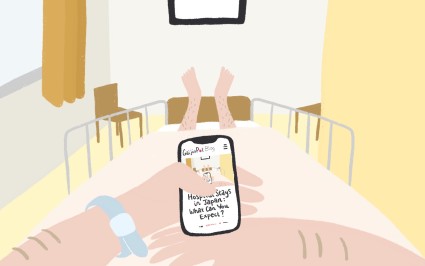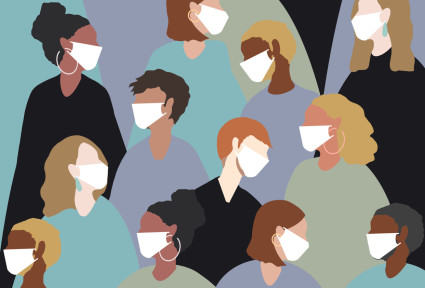A new study is raising fresh questions about the value of breast cancer screening in older women, finding that those 70 and older who underwent mammograms were more apt to be diagnosed with tumors posing no threat to their health than those who did not screen.
The study by researchers at Yale Medical School, published in the journal Annals of Internal Medicine, tracked 54,635 U.S. women 70 and older who received a mammogram - an X-ray of the breast - in 2002. Women who opted for continued screening were compared to those who chose not to be screened.
The researchers found that among women ages 70 to 74, up to 31% of breast cancer cases found among those who underwent mammograms were overdiagnosed - defined as the diagnosis of a medical condition, typically through screening, that otherwise would not have led to symptoms or problems in a person's lifetime.
As age increased, so did overdiagnosis, the study found. In women ages 74 to 84, that jumped to 47% - and to 54% in those 85 and older.
The study also did not find statistically significant reductions in breast cancer deaths associated with screening.
The rationale for screening is to catch a disease at an earlier stage to improve the chances of successful treatment. Overdiagnosis might lead to unnecessary treatments and the accompanying financial and emotional burdens.
A concern of continued screening in older women is detecting breast cancers that would never become symptomatic, according to study lead researcher Dr. Ilana Richman, an internal medicine physician at Yale Medical School.
"At some point, it's unlikely that knowing about breast cancer earlier is going to make much of a difference," Richman said.
The U.S. Preventive Services Task Force, an expert panel that makes recommendations about clinical preventive measures, has recommended that women ages 50 through 74 undergo screenings every two years. But it has said there is not enough evidence to assess the harms and benefits of mammograms for women ages 75 and up. The task force is reviewing a draft recommendation to lower the starting age for regular mammograms to 40.
The American Cancer Society has recommended screening women over 55 if their life expectancy is more than 10 years, whereas the American College of Physicians has recommended discontinuing screening women over 74 for women whose life expectancy is 10 years or less.
"It's critical for older women who are thinking, 'Should I continue screening,' to understand what is the full range of risks and benefits," Richman said, adding, "I'm interested in what can we do to help women understand their options."
Oncologists Drs. Otis Brawley and Rohan Ramalingam from Johns Hopkins University wrote in an editorial accompanying the study that physicians need new tools to objectively identify the stage and severity of cancer.
© Thomson Reuters 2023.














9 Comments
Login to comment
virusrex
One mistaken belief a lot of people have is that more testing is always good, but as the study of this articles proves this is not always the case. Clinicians have to carefully consider a lot of things in order to make the decision of a test, how much benefit it brings to the patient, how much risk, what are the costs, etc.
As the final part of the article conveniently mentions this decision can be made easier by better tools for the diagnosis that can let doctors get much better information. Breast cancer can be cured for all practical means (as in eliminated completely so the patient will live the rest of their lives without a recurrence) for most patients as long as it is detected opportunely.
OnTheTrail
I wonder if the bus that can barely park on the city curb doing mammograms has clinicians that are making these delicate assessments? My suspicion is they are processing people through like a Moss burger drive-thru given what I see during lunch hour. But that could be irrational, non-scientific observation.
virusrex
Generally speaking the decision about a patient needing or not a test is done well before it is conducted, so patients are informed during their visits to a doctor about what frequency is better for their testing.
As long as the test is done properly, the interpretation of the results can be done later by professionals that will take into account many factors not necessarily considered at the time of the test (family history of disease for example) at the time these results are communicated to the patient they can also be informed if they should change the way they are being tested according to their specific situation as well.
Jonathan Prin
X-ray causes cancer. The solution is the cause sometimes.
And making money out of something routinely making you more money too.
The more is not necessarily the better, quite mofe than one thinks.
Jonathan Prin
Like many many medicine effects, dosage is very important. Minimum effective dose and listing side effects is something needing a lot of time to establish.
wallace
My spouse limits hers to one every two years.
virusrex
Generally speaking the risk of cancer by a mammography is terribly low (as one case per tens of thousands of times of exposure) in this case the much more significative risk is because unnecessary treatments (surgery chemo radio). Still, both kind of risks can be reduced with a proper algorithm that can let professionals choose the best schedule to maximize benefits and minimize the risks.
As long as the person is getting the best possible medical treatment (including preventive one) according to scientific evidence this is not something that should impact negatively the decision of how frequently they should get tested. Getting a more advance cancer to minimize the profit someone may be making from the tests is a losing proposition.
For mammography tests this is not a problem, the dosage of radiation can be immediately established because it does not depend on any effect that will take time to be observed, the necessary dose is simply the one that give images precise enough to evaluate the risk of cancer. Also ionizing radiation is well studied so side effects are already well characterized and can be evaluated without problem, specially with a source with a known amount and that is very stable such as diagnostic x-rays.
Snuggles
This is an area where AI, which is replacing jobs in the health field, could make a major impact.
Take your blood pressure, give people a Covid test, correctly diagnose mammograms.
virusrex
AI do not have the capacity to take blood pressure measurements, give tests or diagnose by itself, it can help professionals do these tasks but they are still necessary to complete all those actions.